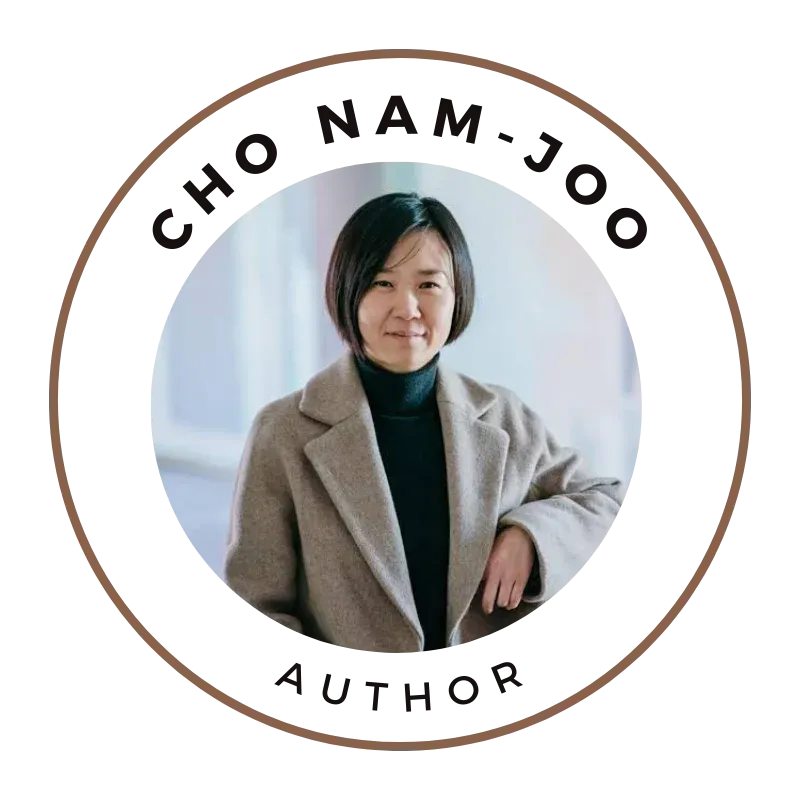In a small, tidy apartment on the outskirts of the frenzied metropolis of Seoul lives Kim Jiyoung. A thirtysomething-year-old “millennial everywoman,” she has recently left her white-collar desk job―in order to care for her newborn daughter full-time―as so many Korean women are expected to do. But she quickly begins to exhibit strange symptoms that alarm her husband, parents, and in-laws: Jiyoung impersonates the voices of other women―alive and even dead, both known and unknown to her. As she plunges deeper into this psychosis, her discomfited husband sends her to a male psychiatrist. In a chilling, eerily truncated third-person voice, Jiyoung’s entire life is recounted to the psychiatrist―a narrative infused with disparate elements of frustration, perseverance, and submission. Born in 1982 and given the most common name for Korean baby girls, Jiyoung quickly becomes the unfavored sister to her princeling little brother. Always, her behavior is policed by the male figures around her―from the elementary school teachers who enforce strict uniforms for girls, to the coworkers who install a hidden camera in the women’s restroom and post their photos online. In her father’s eyes, it is Jiyoung’s fault that men harass her late at night; in her husband’s eyes, it is Jiyoung’s duty to forsake her career to take care of him and their child―to put them first. Jiyoung’s painfully common life is juxtaposed against a backdrop of an advancing Korea, as it abandons “family planning” birth control policies and passes new legislation against gender discrimination. But can her doctor flawlessly, completely cure her, or even discover what truly ails her? Rendered in minimalist yet lacerating prose, Kim Jiyoung, Born 1982 sits at the center of our global #MeToo movement and announces the arrival of writer of international significance.
Unveiling the Patriarchal Struggles: Exploring "Kim Jiyoung, Born 1982" by Cho Nam-joo
Introduction: In a society where gender roles are deeply entrenched, "Kim Jiyoung, Born 1982" by Cho Nam-joo offers a poignant and powerful exploration of one woman's journey through the rigid misogyny of South Korean society. Through the lens of Kim Jiyoung's life, the novel exposes the pervasive discrimination and social expectations faced by women, making it a timely and essential read in the era of the #MeToo movement.
Unraveling the Narrative: Set against the backdrop of modern-day Seoul, "Kim Jiyoung, Born 1982" follows the life of its titular character as she grapples with the oppressive gender norms that shape every aspect of her existence. From childhood to adulthood, Jiyoung's story is a testament to the countless ways in which women are marginalized, silenced, and dismissed in a patriarchal society.
Through a chilling and minimalist prose style, Cho masterfully captures the relentless buildup of sexism and discrimination that Jiyoung faces throughout her life. From the subtle policing of her behavior by male authority figures to the overt harassment and abuse she endures in the workplace, the novel offers a searing indictment of the systemic misogyny that permeates Korean society.
Themes of Gender Inequality and Social Commentary: At its core, "Kim Jiyoung, Born 1982" is a searing critique of the gender inequality that persists in South Korea and beyond. Through Jiyoung's experiences, Cho shines a light on the insidious ways in which women are devalued, silenced, and erased in both private and public spheres.
Moreover, the novel serves as a potent social commentary on the broader implications of patriarchy and its impact on individual lives. By weaving together Jiyoung's personal narrative with larger societal trends and events, Cho invites readers to reflect on the ways in which gender discrimination manifests and perpetuates itself on a systemic level.
Critical Acclaim and Global Impact: Since its publication, "Kim Jiyoung, Born 1982" has garnered widespread acclaim and sparked important conversations about feminism, gender equality, and social change. Praised for its unflinching portrayal of the female experience, the novel has become a touchstone for readers around the world seeking to understand and confront issues of misogyny and sexism.
With its inclusion on prestigious lists such as the National Book Award Longlist and the New York Times Notable Books of 2020, "Kim Jiyoung, Born 1982" has solidified its status as a literary phenomenon with lasting relevance and resonance. Cho's incisive storytelling and keen social commentary have cemented her reputation as a writer of international significance, further amplifying the novel's impact and influence.
Conclusion: In conclusion, "Kim Jiyoung, Born 1982" by Cho Nam-joo is a compelling and thought-provoking work that offers a powerful indictment of patriarchy and gender inequality. Through its stark portrayal of one woman's struggle against societal norms, the novel challenges readers to confront the pervasive injustices faced by women in South Korea and beyond. As a groundbreaking work of feminist literature, "Kim Jiyoung, Born 1982" stands as a testament to the power of storytelling to provoke change and inspire empathy in the face of adversity.

How can you read this book?
Click these simple buttons to read this book today.
You may like these books... Buy now!

|

|

|
Cho Nam-Joo, author. 20+ countries THE STORM WE MADE⚡️ from @MSRBooks & @HodderBooks (GMA & BBC Radio 2 book club pick). Also THE UGLIEST BABIES IN THE WORLD👶🏻 soon. ![]()
Unveiling Cho Nam-joo: Redefining Gender Discourse Through Literature
Cho Nam-joo emerges as a trailblazing voice in contemporary Korean literature, challenging societal norms and sparking conversations about gender inequality and discrimination through her groundbreaking novel, "Kim Jiyoung, Born 1982." With a background in television scriptwriting, Cho brings a unique perspective to her writing, drawing inspiration from her own experiences as a woman navigating the complexities of modern Korean society.
Born and raised in South Korea, Cho embarked on her literary journey after years spent working as a television scriptwriter. It was during this time that she honed her storytelling skills and developed a keen awareness of the social and cultural dynamics shaping the lives of women in Korea. Drawing on her own experiences as a wife and mother, Cho delved deep into the nuances of female identity and empowerment, laying the groundwork for her seminal work, "Kim Jiyoung, Born 1982."
Published in 2016, "Kim Jiyoung, Born 1982" quickly became a cultural phenomenon, resonating deeply with readers and sparking widespread discussion about gender roles and discrimination in Korean society. The novel follows the life of its titular character, Kim Jiyoung, as she navigates the challenges and injustices faced by women at every stage of life, from childhood to adulthood. Drawing on Cho's own experiences as a woman who left her job to stay at home after giving birth, the novel offers a searing critique of patriarchal norms and societal expectations.
What sets "Kim Jiyoung, Born 1982" apart is its ability to capture the everyday realities of women in Korea with unflinching honesty and empathy. Cho's portrayal of Kim Jiyoung's experiences, from workplace discrimination to the pressures of motherhood, strikes a chord with readers of all backgrounds, shining a light on the pervasive nature of gender inequality in Korean society. The novel's impact has been nothing short of transformative, sparking nationwide debates and inspiring a new generation of feminist activists to push for change.
In addition to its cultural significance, "Kim Jiyoung, Born 1982" has garnered international acclaim, with translations in over 18 languages bringing Cho's powerful message to readers around the world. The novel's universal themes of identity, agency, and resilience have resonated with readers of all backgrounds, transcending geographical and cultural boundaries to spark conversations about gender equality on a global scale.
Beyond her literary achievements, Cho Nam-joo's impact extends to her role as a cultural icon and feminist trailblazer in South Korea. Her fearless advocacy for women's rights and social justice has earned her widespread admiration and respect, solidifying her status as a leading voice in the fight for gender equality. Through her writing and activism, Cho continues to challenge the status quo and inspire change, leaving an indelible mark on Korean literature and society as a whole.
As Cho Nam-joo's influence continues to grow, her legacy as a champion of gender equality and social justice is secure. With "Kim Jiyoung, Born 1982" as her enduring legacy, Cho's voice will continue to echo through the corridors of Korean literature, inspiring future generations to question, challenge, and redefine the norms that govern our world.
















